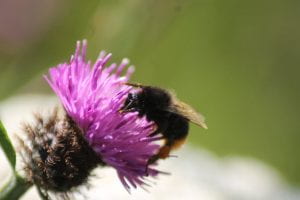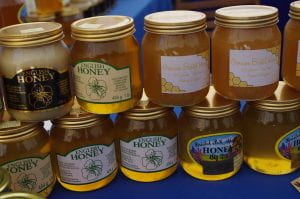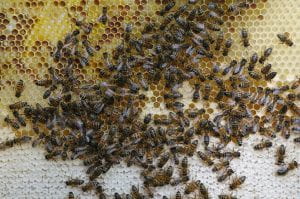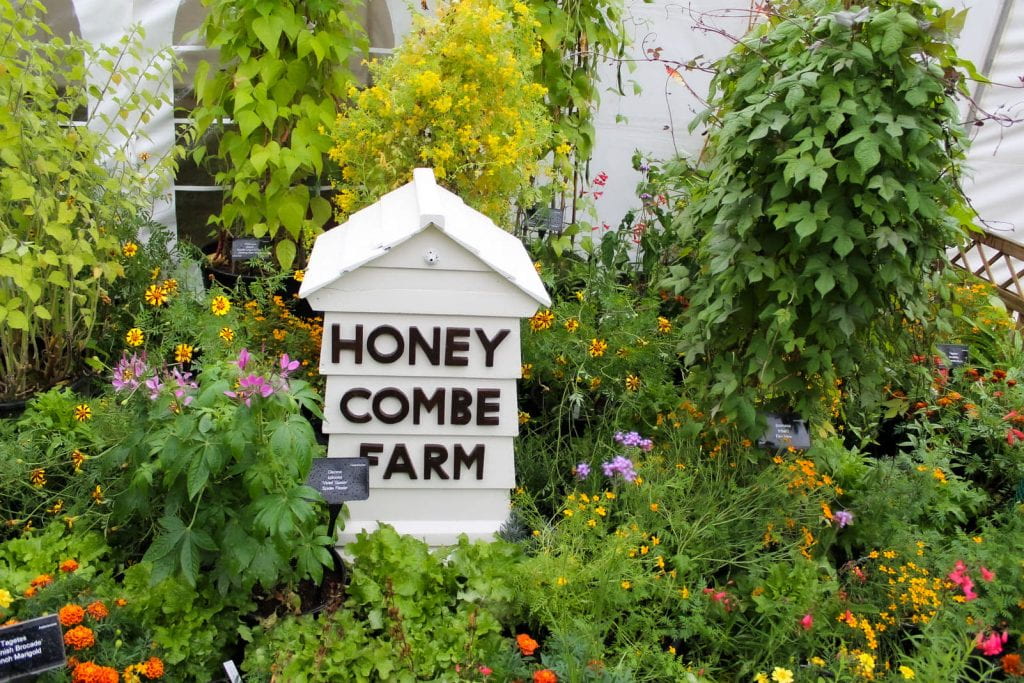The University of Bristol marked the 10th anniversary of the Bee and Pollination Festival at the Botanic Gardens on Saturday- 31st August and Sunday- 1st September.
Beekeepers, scientists and local enthusiasts teamed up for a fantastic event aimed at educating, celebrating and raising awareness of the importance of pollination. A ‘hive’ of activities were spread across the two days, including- exhibition stands, educational talks, craft workshops and some fantastic plant and produce sales.
Upon my arrival at the festival I was met by one of the staff members, Nicola Rathbone (also known as Frogie), who was extremely kind and took time out of her busy schedule to talk me through the activities on hand and what to expect throughout the weekend. At the end of the conversation she left me with an interesting thought; “It’s not just about the bees, it’s about all pollinators”. People`s focus is usually centred around honeybees when it comes to pollination and often the rest of the 300,000 species of pollinators are overlooked. The event’s organisers are keen to stress that all pollinators have value and are worthy of conservation.
On Saturday, the Festival welcomed Jane Memmott, Professor of Ecology at the University of Bristol and Director of the Botanic Gardens, and her talk on ‘Who pollinates your daily food and why it matters’.
She walked visitors through examples of foods that are a product of pollination, often foods we consume every day and could be found in our cupboards. She encourages us to put more thought into what goes into our meals and how it end up there. She continued with factors that contribute to the rapid decline of pollinators, what could be done and how we can implement small changes in our everyday lives in order to attract and protect pollinators in our gardens.
Another popular talk was by Phil Savoie, biologist and award winning nature photographer, with ‘Wild Bees in my Garden’. Using mesmerising photos, he took visitors on a journey around his garden to have a closer look inside the lives of different species of native bees.

An insight into the Asian Hornet and the havoc it causes on honeybees in the Channel Isles was presented by Lynne Ingram, Master beekeeper from Somerset, who has been working alongside scientists from the University of Exeter and Jersey in order to tackle the perils of the Asian Hornet. Using ground-breaking telemetry, she and her team are tracking Asian Hornets back to where they nest and destroying the nests once located. She is tirelessly working on spreading awareness among beekeepers and the public of the destructive nature of these invasive wasps and the harm they bring to honeybees and other pollinators.
Matt Cracknell, Project Manager of Feed Bristol, was another speaker. He introduced the project for a six-acre wildlife gardening hub and a native wildflower nursery, where people and wildlife can thrive together.
The festival continued on Sunday with a very interesting talk from Dr Rowena Jenkins, lecturer in Microbiology and Infectious Disease in the College of Medicine at Swansea University, on her research on the healing qualities of Manuka honey against antibiotic- resistant strains of certain bacteria.
Across the two days, nature organisations put on free workshops, exhibitions and information stands to celebrate pollinators. Organisations such as Avon Wildlife Trust, Bristol Naturalists Society, Friends of the Downs and Avon Gorge, as well as the School of Biological Sciences and many more took on the task to engage with the many who attended, raising awareness and promoting interest in local nature, and encouraging pollinators’ wellbeing.
Bee- friendly flower and plant seeds, honey and even raw pollen (which is great in smoothies) were available for people to take home. Visitors had the opportunity to taste honey cakes and cider, and buy local fruits and vegetables; all of which supports local farmers and allows you to reduce your environmental impact.


The family-friendly workshops, demonstrations and games were enjoyed by everyone. There was willow weaving and nature workshops, beekeeping demonstrations and games like the children’s trail, where through pictures, kids and their parents were identifying different plants and their associated pollinators.
The director of the gardens, Prof. Jane Memmott, leaves us with food for thought; “What makes pollinators happy often makes people happy too – flowers provide a literal feast for bees and a visual feast for people”
On a whole, it was a fantastic event with something for everyone: a good balance of fun, food and educational events. As commented by one of the visitors “it is not one to miss”, so make sure you attend next year!
Written by Antonia Yovcheva, Palaeontology and Evolution (BSc), School of Earth Sciences


